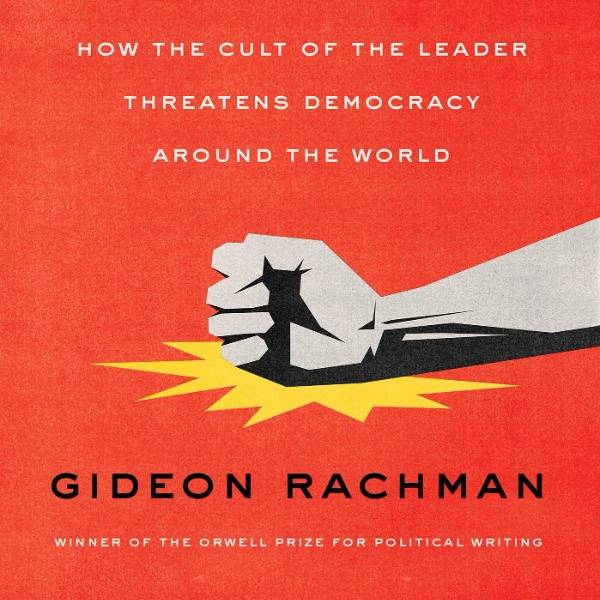1) The US religious freedom report is out – but critics want to know why some countries are missing
The US State Department published its religious freedom report this week, a document that highlights the countries deemed to be "of particular concern" in threatening the freedom of belief of their citizens. It is the first time the list has been published in three years, and the previous countries of concern – Burma, China, Eritrea, Iran, North Korea, Saudi Arabia, Sudan and Uzbekistan – have been joined by a new addition, Turkmenistan.
However, while human rights activists welcomed the report, they raised questions as to why certain states were not included. In addition to Turkmenistan, the independent US Commission on International Religious Freedom had recommended that Tajikistan, Vietnam, Pakistan, Syria, Iraq, Nigeria and Egypt should be cited for their restrictions on freedom of belief, but none were listed as "of particular concern" by the State Department.
2) Young people appear to be shunning drink and drugs
Tales of out-of-control youths are a familiar part of discussions on the state of British society, but it appears kids today are actually far more under control than the generations that preceded them. New research suggests that British teens are drinking less and taking fewer drugs than their counterparts a decade ago – figures from the Health and Social Care Information Centre show that the number of 11-15 year-olds taking drugs has halved since 2003, while a third fewer schoolchildren have tried alcohol. Quite why this has happened is open to debate, with suggestions ranging from higher standards of parenting to young people spending more of their time on the internet.
3) It wasn't Boris who banned an anti-gay bus ad
When a Christian charity, the Core Issues Trust (CIT), began running adverts on London buses promoting "gay cure" therapies in 2012, the city's transport authority, Transport for London, moved quickly to ban them. The CIT accused the mayor, Boris Johnson, of being behind the ban, saying he was "currying favour" with gay rights groups amid his re-election campaign. However, following a lengthy legal battle, the High Court this week ruled that it was TfL, and not the mayor, that had banned the ads.
4) Satanists are testing the US ruling on the "religious rights" of corporations – and they're taking a scientific approach
The recent "Hobby Lobby" ruling by the US Supreme Court held that corporations can have religious rights, and can therefore refuse to pay for contraception under their employees' healthcare plans. It proved highly controversial, and it is now meeting an unexpected test by Satanists, who are arguing that their religious beliefs should exempt them from having to follow the restrictive abortion laws in certain US states.
The Satanic Temple this week announced that it is seeking a religious exemption from "informed consent" laws, which require women seeking abortions to listen to advice on the supposed links between abortion and breast cancer, as well as the supposed existence of a psychiatric "postabortion syndrome. Citing their commitment to a "scientific understanding of the world", the Satanists argue that such advice is "scientifically unfounded", and therefore that members of the Temple should not be forced to listen to it.
5) We now know why the Moon is lemon-shaped
It's 45 years since men first landed on the Moon, but it has taken until this week to learn the answer to an important question about our satellite – why is it shaped like a lemon?
A team of researchers at the University of California Santa Cruz have found that the Moon acquired its distinctive shape shortly after its formation 4 billion years ago, when its centre was still mostly liquid. At that point, the Moon span faster on its axis (it spins incredibly slowly now), and was closer to the Earth, and the researchers argue that the combination of the spinning and the Earth's tidal pull were responsible for creating the satellite's lemon-like shape.
6) Chocolate snacks can be a symbol of democracy
In the ongoing struggle between North and South Korea, a popular chocolate snack has become an unlikely symbol of the freedoms denied to North Koreans by the oppressive regime of Kim Jong-Un. This week, 200 South Korean activists released helium balloons carrying 350kg of snacks across the border to the North, including 10,000 Choco Pies, a popular snack banned by the Pyongyang regime after becoming a valuable item of exchange on the black market. Sending balloons across the border is a popular tactic among Southern activists, and the North has previously responded by threatening to shell the launch sites.
7) The Pope's "Ten Commandments" contain some sound advice
In an interview published in his native Argentina this week, Pope Francis offers his ten tips for living a happy life – and, in yet another sign of his ability to charm believers and non-believers alike, there's something there for everyone. His tips include: “Live and let live", respect nature, don't be negative, work for peace, take a family day off each week (he suggests Sundays, funnily enough), and, most strikingly, don't proselytise and force your beliefs on others. It will be interesting to see whether believers heed that last piece of advice.
8) China's crackdown on Christianity is continuing
China retained its place as a country "of particular concern" on the US religious freedom report cited above, and the latest news regarding the state's treatment of Christianity suggests such concern is justified. The New York Times reports that authorities in the city of Wenzhou this week used a crane and a blowtorch to topple a church crucifix, mirroring a similar removal of crosses on two churches in the city of Taizhou last Friday. News of a crackdown on Christianity follows reports of a recent crackdown on the freedom of Muslims in the western region of Xinjiang, where restrictions were placed on the observance of Ramadan in the workplace.
9) 100 years on from World War One, we continue to debate why it happened
It is now exactly 100 years since the outbreak of the First World War – Austria-Hungary declared war on Serbia on 28 July 1914, and numerous declarations of war between the European powers followed, with Britain declaring war on Germany on 4 August. As commemorations take place around the world, it's clear that there is still little agreement on precisely why the conflict occurred.
In the Summer issue of New Humanist, Kenan Malik explores the debate around the causes of the First World War, and looks at the role that imperial rivalries played in Europe's descent into conflict. Imperialism is often overlooked in debates about the causes of the war, but Malik argues that it is essential to an understanding of what happened in the summer of 1914. We've just published the essay online, so why not have a read and see what you think.

